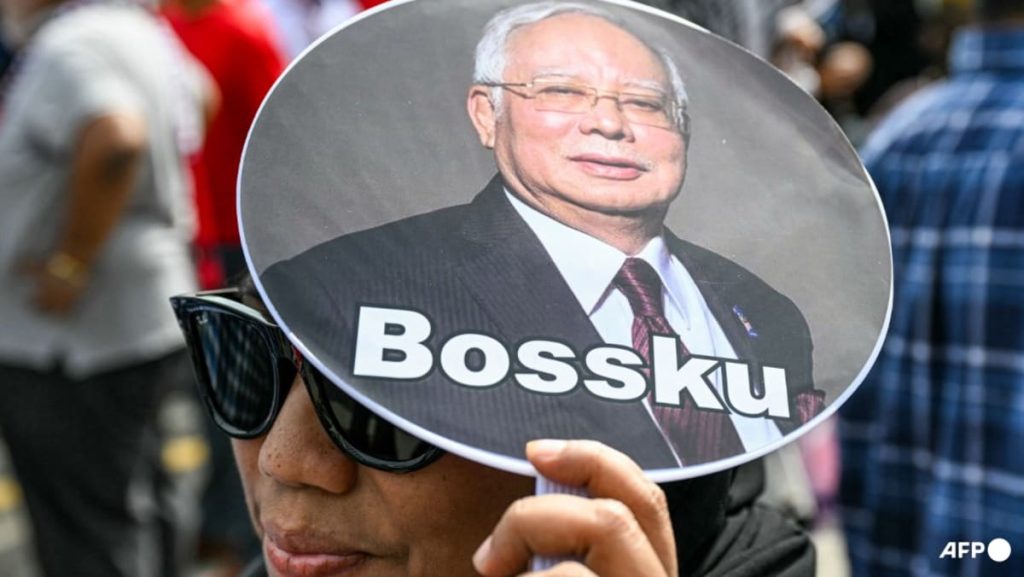The controversy surrounding the existence and accessibility of a purported settlement document between the Malaysian government and the International Petroleum Investment Company (IPIC) has intensified, with conflicting statements from various government bodies and the former Prime Minister, Najib Razak. The document, believed to pertain to the multi-billion dollar 1MDB scandal, has become a focal point in Najib’s ongoing legal battles and has raised questions about transparency and potential political maneuvering. Najib, who was convicted in 2020 on charges related to the 1MDB affair, claims the document is crucial to his defense and alleges its suppression as evidence of a conspiracy against him. The palace’s confirmation of the document’s existence stands in stark contrast to the government’s denials, further muddying the waters and fueling speculation.
The Malaysian government, under Prime Minister Anwar Ibrahim, has vehemently denied possessing the document or attempting to conceal its contents. The law ministry’s official statement asserts that no record of the settlement exists within their archives. Home Minister Saifuddin Nasution Ismail has similarly disavowed any knowledge of the document. Prime Minister Anwar has publicly declared that the government has nothing to hide, emphasizing their commitment to transparency and the rule of law. This apparent discrepancy between the palace’s acknowledgment and the government’s denial has sparked public debate and intensified scrutiny of the administration’s handling of the issue. Critics argue that the government’s denials lack credibility given the palace’s confirmation, while supporters maintain that the document may exist outside official government channels and therefore not be within the purview of the law ministry or the home minister.
Adding to the complexity of the situation is the gag order filed by the Attorney General’s Chambers, seeking to prevent further public discussion of the document. This move has been met with criticism from opposition figures and freedom of speech advocates who argue that it restricts public access to information crucial for understanding the 1MDB scandal and its implications. The government maintains that the gag order is necessary to protect sensitive information and maintain national security. The deputy chief of the chambers’ civil division, Shamsul Bolhassan, has stated that the case touches on sensitive issues, further justifying the need for discretion. This gag order, however, has further fueled speculation about the document’s contents and the government’s motives for suppressing its dissemination.
Najib Razak, who is currently facing multiple corruption charges related to the 1MDB scandal, views the Court of Appeal’s decision to allow his appeal for access to the document as a significant victory. He maintains that the document contains crucial information that could exonerate him from the charges and expose a political conspiracy orchestrated against him. He has consistently framed the government’s actions as an attempt to obstruct justice and silence dissent. The Court of Appeal’s decision to overturn the earlier dismissal of Najib’s request represents a crucial turning point in his legal battle. It allows him to pursue his claim for access to the document and present his arguments before another judge, potentially revealing new information and influencing the course of the ongoing trials.
The dispute over the settlement document underscores the deep political divisions within Malaysia and the enduring legacy of the 1MDB scandal. The conflicting narratives presented by the palace, the government, and Najib Razak highlight the complex power dynamics at play and raise questions about the integrity of the legal process. The gag order further complicates the situation, limiting public access to information and potentially hindering the pursuit of truth and accountability. The case has become a litmus test for the Anwar Ibrahim administration’s commitment to transparency and the rule of law, with its handling of the situation likely to have significant political ramifications.
Ultimately, the existence and accessibility of the settlement document remain a source of contention and uncertainty. The conflicting statements from various involved parties have created a climate of distrust and fueled speculation about the true nature of the document and its implications for the 1MDB scandal. The ongoing legal battles and the gag order further complicate the situation, hindering the public’s ability to fully understand the complex web of events and their potential consequences. The resolution of this issue will undoubtedly have a profound impact on Malaysian politics and the pursuit of justice in the 1MDB affair. The court’s eventual decision on Najib’s access to the document will be a pivotal moment, potentially revealing critical information and significantly impacting the course of the ongoing legal proceedings. The outcome of this saga will resonate beyond the courtroom, shaping public perception of the government, the judiciary, and the very foundations of Malaysian democracy.

